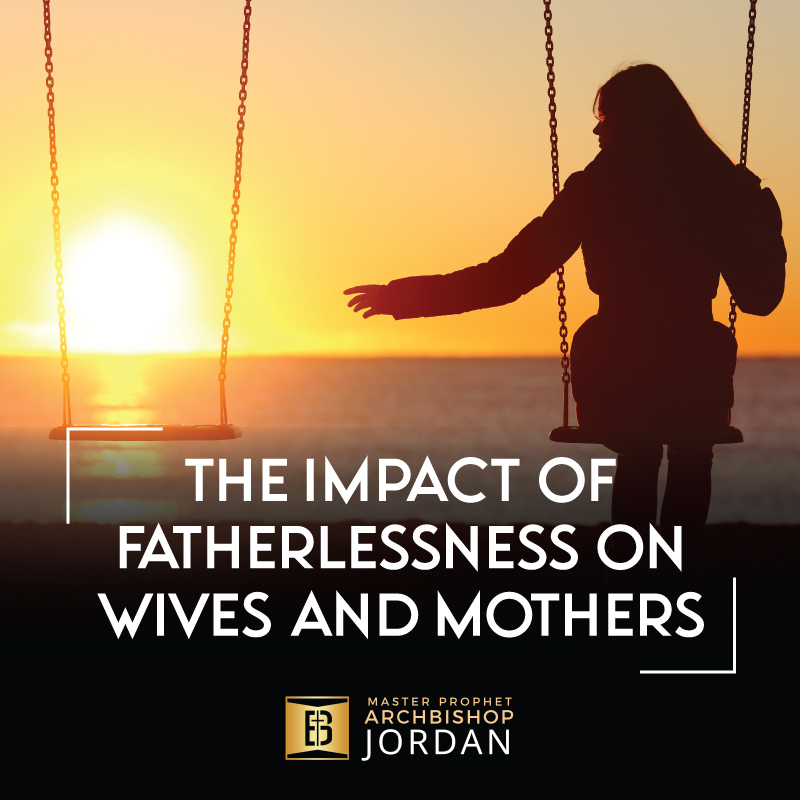“One thing that prevents a man from being a good father is he hasn’t completed being a boy.”
Iyanla Vanzant
“Cursed be anyone who deprives the alien, the orphan, and the widow of justice.” All the people shall say, “Amen!”
Deuteronomy 27:9 NRSV
Fatherlessness is an “elephant” in the room, a topic that few church leaders seem to be addressing or at least addressing in a proactive manner to facilitate change. For the few that are discussing this issue, it is mostly discussed in reactionary terms in transitioning children to a single-mother household. Yet, what does the Bible say regarding the most pressing societal ill in America according to many sociologists—fatherlessness?
Fatherlessness is an “elephant” in the room, a topic that few church leaders seem to be addressing or at least addressing in a proactive manner to facilitate change.
What are the implications of fatherless families, be they single-mother households, same-sex marriages, or matriarchal cultures? While some see the role of “male” fatherhood as superfluous, this essay will argue that fatherlessness is a pervasive problem, an epidemic—chiefly arising from two root causes: divorce-on-demand and unwed pregnancies—that has severe implications regarding God’s word, church, and world.
Fathers are one of the two most important role models in children’s lives. The decline of fatherhood and marriage cuts at the heart of the kind of environment considered ideal for childrearing. What the decline of fatherhood and marriage in America really means, then, is that slowly, insidiously, and relentlessly our society has been moving in an ominous direction—toward the devaluation of children.
Fathers make unique contributions to child rearing, including a parenting style different from mothers and an emphasis on play, which facilitates normal emotional development.
The increasing percentage of children living apart from their natural fathers is an unpredicted, and not widely discussed, trend. Fatherlessness is a major force behind many disturbing U.S. social problems. The institution of marriage acts as culture’s chief vehicle to bind men to their children. The absence of fathers from children’s lives is one of the most important causes of problems related to children’s well-being such as increasing rates of juvenile violent crime, depression and eating disorders, teen suicide, and substance abuse. The economic difficulties experienced by mother-headed families ultimately account for many of the disadvantages found among fatherless children. Fathers make unique contributions to child rearing, including a parenting style different from mothers and an emphasis on play, which facilitates normal emotional development.
Marriage and childrearing act as extremely important civilizing forces for men; when there are large numbers of young, unattached males concentrated in one place, there are increases in social disorder.
The largest negative consequence of father absence is juvenile delinquency and violence, and early sexual activity. Marriage and childrearing act as extremely important civilizing forces for men; when there are large numbers of young, unattached males concentrated in one place, there are increases in social disorder. It is necessary to undo the cultural shift toward radical individualism to restore marriage and reinstate fathers in their children’s lives. Changes in the attitudes and actions of employers, religious leaders, family scholars, marriage counselors, legislators, and the entertainment industry could strengthen the institution of marriage. Fathers’ role must be redefined to involve full engagement in their children’s development from the beginning.[1]
Popenoe’s research reveals that in just three decades—between 1960 and 1990—the percentage of children living apart from their biological fathers increased dramatically from seventeen to thirty-six percent. Along with this statistic, came a sharp increase in poverty, crime, abortion, teen pregnancy, high school dropouts, teenage suicide, child abuse, and child molestation.[2]
Before they reach the age of eighteen, more than half of our nation’s children are likely to spend a significant portion of their childhoods living apart from their fathers. Never in this country have so many children been voluntarily abandoned by their fathers. Never have so many children grown up without knowing what it means to have a father. According to David Blankenhorn, Fatherlessness is the most harmful demographic trend of this generation.
Before they reach the age of eighteen, more than half of our nation’s children are likely to spend a significant portion of their childhoods living apart from their fathers.
I want to personally invite you to our LIVE CONFERENCE CALL and get exclusive access to our prophetic conversations.
1) Call 515-604-9266
2) Go to startmeeting.com, and use the login: BishopJordan

